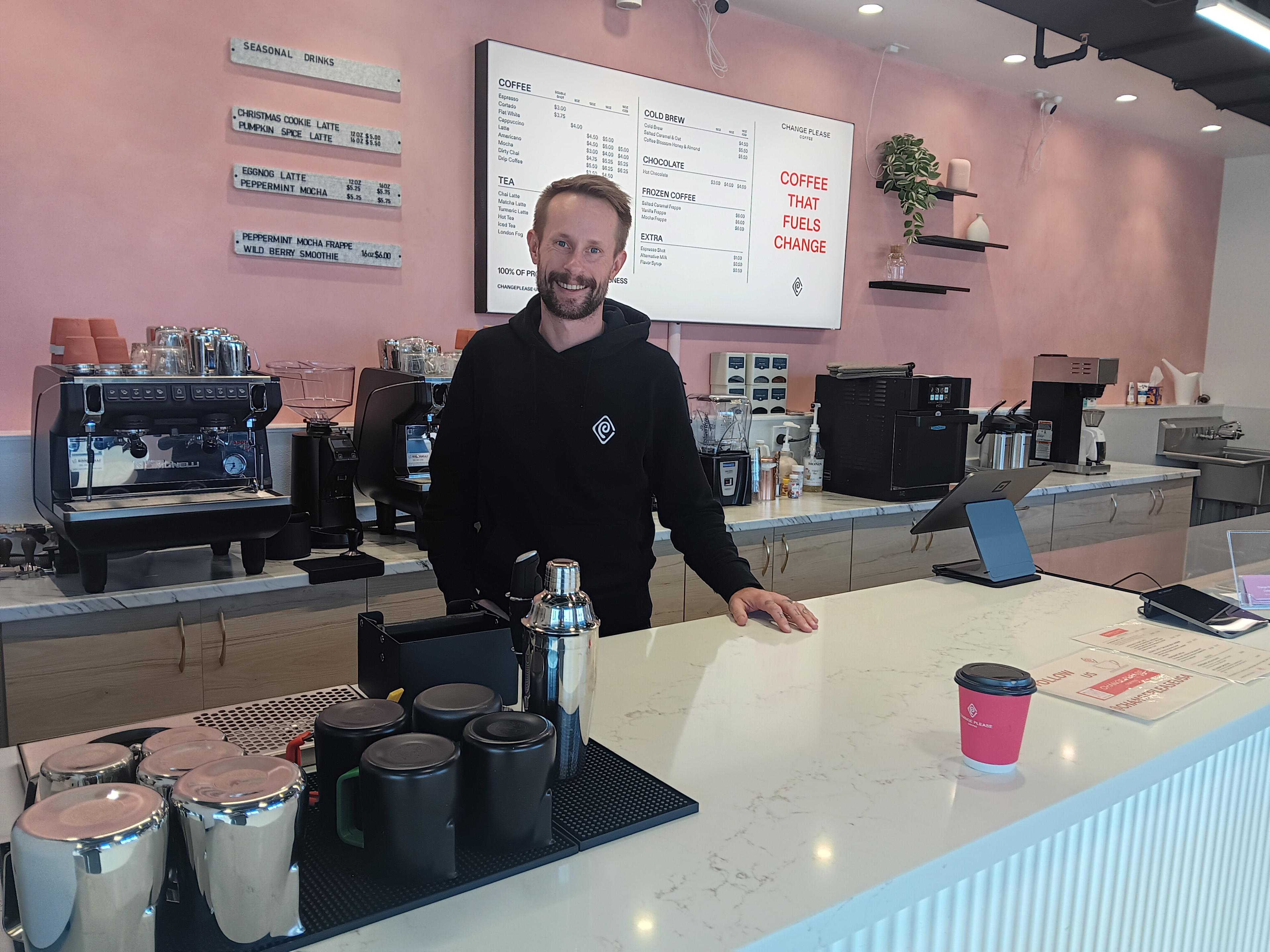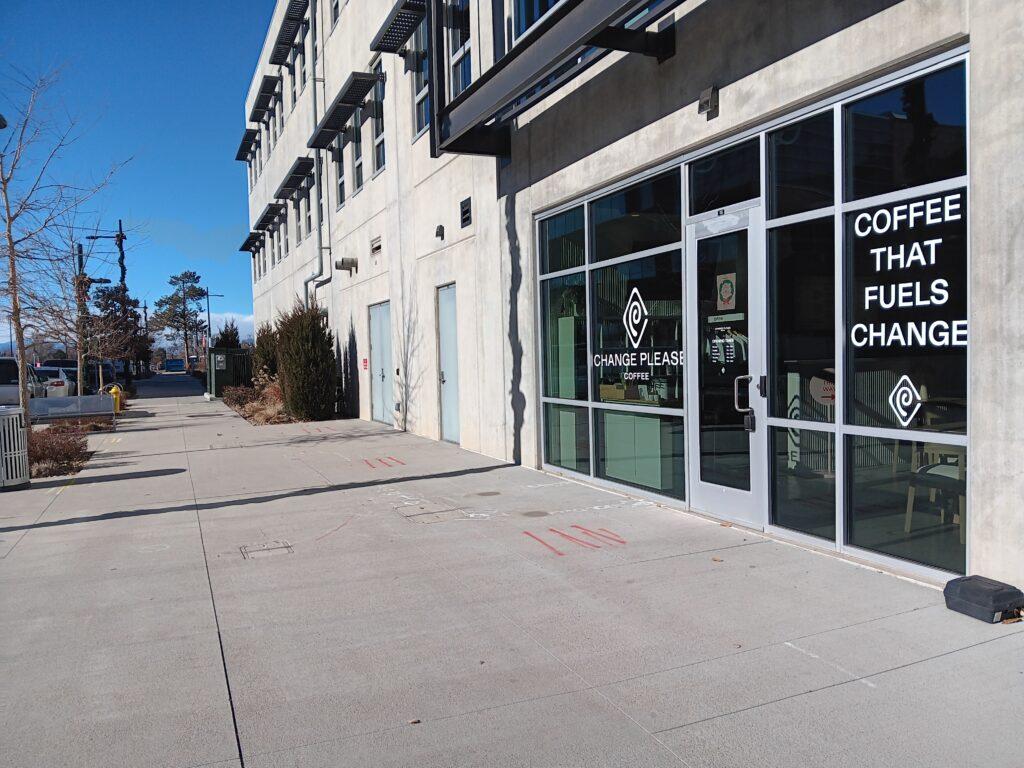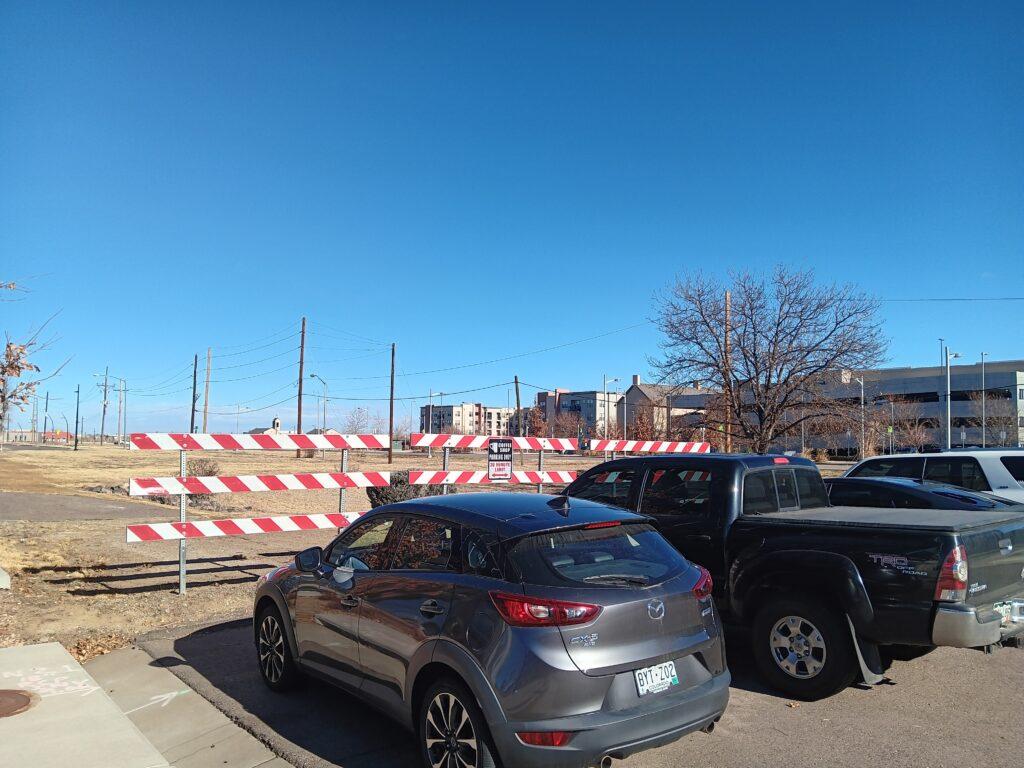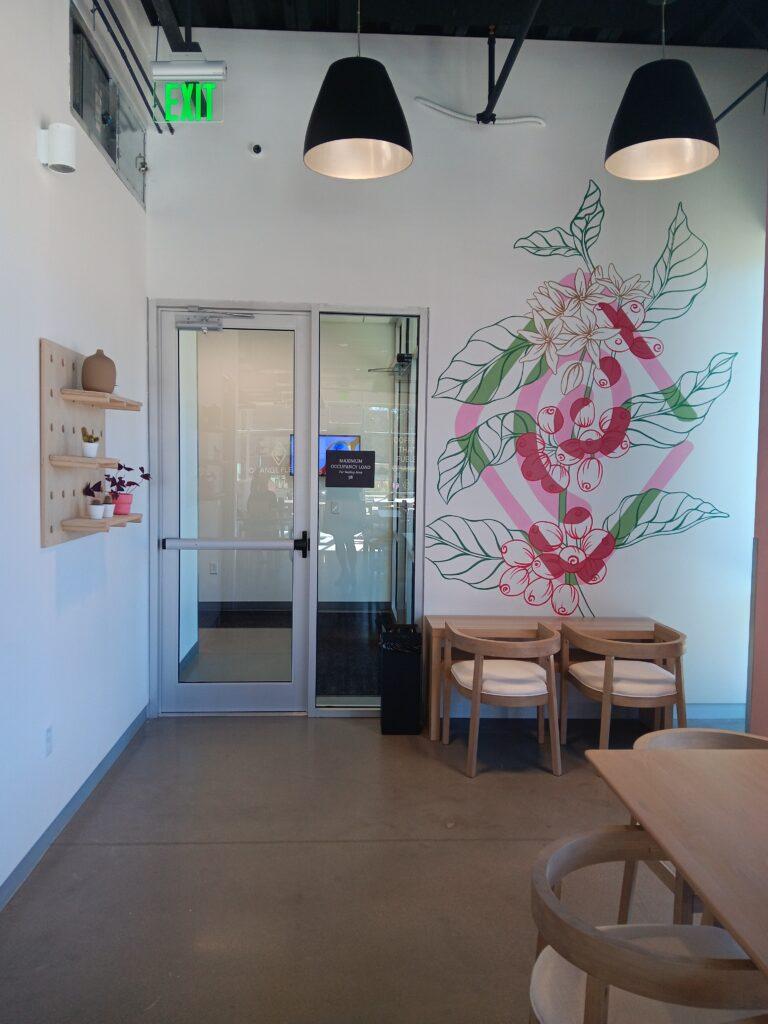
Change Please Coffee, a shop that doubles as a hospitality training ground for people who have experienced homelessness, opened last summer in Aurora at the University of Colorado School of Medicine campus.
Part of a chain of similar cafes in New York City and Charlotte, North Carolina, the one at CU Anschutz shows some promise, and some problems – like you cannot be without some form of shelter and work here.
Since opening in June, it has trained about 30 people who have been homeless or who are experiencing some form of homelessness and living in a shelter or transitional housing.
“We operate as a job training program for folks who are experiencing or at risk of homelessness. We teach them barista skills and customer service skills, and then we help them transition to jobs out in the community,” said Andy Magel, national director of Impact, during a recent interview at the cafe.
Participants, he said, would learn “to work with an espresso machine, to understand coffee, to texture milk, to build drinks, to learn all of the lingo that goes with coffee -- that’s a very specific technical skill that we’re teaching.” He added that participants also learn to make sure customers have a positive experience and that they are reminded to get in the habit of showing up on time when expected.
He explained that the training lasts for a few weeks, and as many as six people can participate at a time, although they haven’t been at full capacity yet.
“We’ve run six cohorts,” said Magel. “I know that there hasn’t been six people in each of them – so our max capacity would be 36, so we’re probably around 30 people trained in 2024.”

The cafe, with pink and white tiled decor, has a capacity for 58 people and sells a range of beverages – typical ones like Americano and drip coffee, as well as choices not seen commonly, such as frozen coffee, turmeric latte and mocha frappe, as well as pastries like scones and muffins. During a recent visit, no trainees were present.
The non-profit organization receives support from foundations, including the Daniels Fund, the Coors Foundation and the Dakota Foundation to supplement the commercial side of the business – which also includes selling coffee in bulk. It has partnerships with organizations that refer clients to training at the coffee shop, including the Colorado Department of Corrections, Mile High Behavioral Health, and the Denver Housing Authority, Magel said.
He gave an example of a parolee living in a halfway house who succeeded in the training program.
“We gave her some skills, and she was super eager to work, and so we helped her get her resume dialed, talked about interviewing, how to talk about her background and these sorts of things. And then she ... applied to a ton of jobs, got a lot of callbacks.”
Quickly, she received several job offers for similar coffee shop work. “She could market herself with the confidence that she had recently been working and had something to offer to an employer,” Magel said.
“I think one of the benefits of coming through the program is if you haven't worked in a while, you don't have anything current on your resume, you don't have any current referrals or references, you can put us as a current job. As we all know, it's easier to get a job when you have a job,” Magel said.
According to their soon-to-be-published annual report, this woman is one of about five dozen who have completed the program at any of the three locations. The report also notes an increase in homelessness – in both absolute numbers and percentages – in a few states last year, including Colorado.
The report identifies Colorado as one of the states with the largest absolute increase in homeless people between 2022 and 2023. The others were New York, Florida, California and Massachusetts.
It also identifies Colorado as one of the few states with the largest percentage increases during the same time period, at 39 percent. The other states are New Mexico, New York and New Hampshire.
Despite offering a marketable skill in a state with increasing homelessness, the coffee shop model as it has been executed in Aurora also has some challenges.

Driving around, it would be impossible to notice the coffee shop, which is only visible once a person has turned off Montview Boulevard onto an easily ignorable side street. A good chunk of the clientele would be students, faculty and staff of the med school – who, when they take a holiday break, leave lots of empty chairs and uneaten scones.
The location of the cafe makes it dependent on the foot traffic of those affiliated with the medical school, which limits the amount of business they do. During a visit this week, when school was on break, there were only two people inside besides Magel; one of them was his wife.
“We’re obviously not a main street, so we need to grow our public awareness,” Magel said, adding, “We have good days, but we don’t have consistency.”
During a recent visit, all four of the free parking spaces allotted to the cafe were filled, leaving no obvious free parking for guests. Magel, who had parked there, said metered parking in the vicinity was the only other option.
“It’s kind of annoying,” Magel said. “We’re working on that.”
Another problem: there’s no restroom in the cafe. Visitors instead must walk down a hall, turn the corner, and walk to the end of another hallway. On the way, one sees signage put up by other occupants of the building, including a center for biomarker innovation and an area where lab coats and closed-toe shoes are required because it’s a “radiation area.”

Then there’s the pay for participants. It’s matched to MIT’s living wage calculator. For the Denver-Lakewood-Aurora area, that comes out to about $26.50 per hour. The cafe is open only from 7 a.m. to 2 p.m., so there’s no opportunity to work there full-time, and with a time limit on the training period, one would not earn enough to catapult oneself into housing.
Another issue is the people who the program is intended to serve – homeless people – can’t get up from their sleeping bags on the sidewalk and show up to be trained there. Rather, people would need to be in some form of structured living situation such as a shelter, a halfway house, Section 8, or currently housed but at risk of homelessness, according to Magel.
In many cases, the community-based organization helping out with housing would refer a potential trainee to Change Please.
“Most folks have come to us through some sort of DHA (Denver Housing Authority) managed housing programs,” Magel said. If they come in on their own, they’re probably not ready, he said.
“It’s unrealistic for someone to work without some form of housing, but that can be transitional,” he said. “We don’t have a lot of requirements, but some form of stable housing is a requirement because sleeping on the sidewalk, actively being homeless, your priority is food and shelter… you’re just not there yet ... so we can refer you to a partner. We can try to help you get housing, but until you’ve got some form of housing, we’re not the right step for most folks,” he said. “As long as you know where you’re sleeping at night, that gives you the mental bandwidth to engage in work activities, and that’s all we’re looking for.”
Despite some challenges, the organization does not have a profit-guzzling owner, and its tagline is “100 percent of our profits help fight homelessness.” Founded in 2015 in London, the organization hopes to continue growing, with new coffee shops set to open in Dallas and Los Angeles in the coming years, which means more people will be able to train for barista work. “The more cafes we have, the more mission we get to do,” Magel said.









